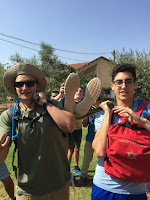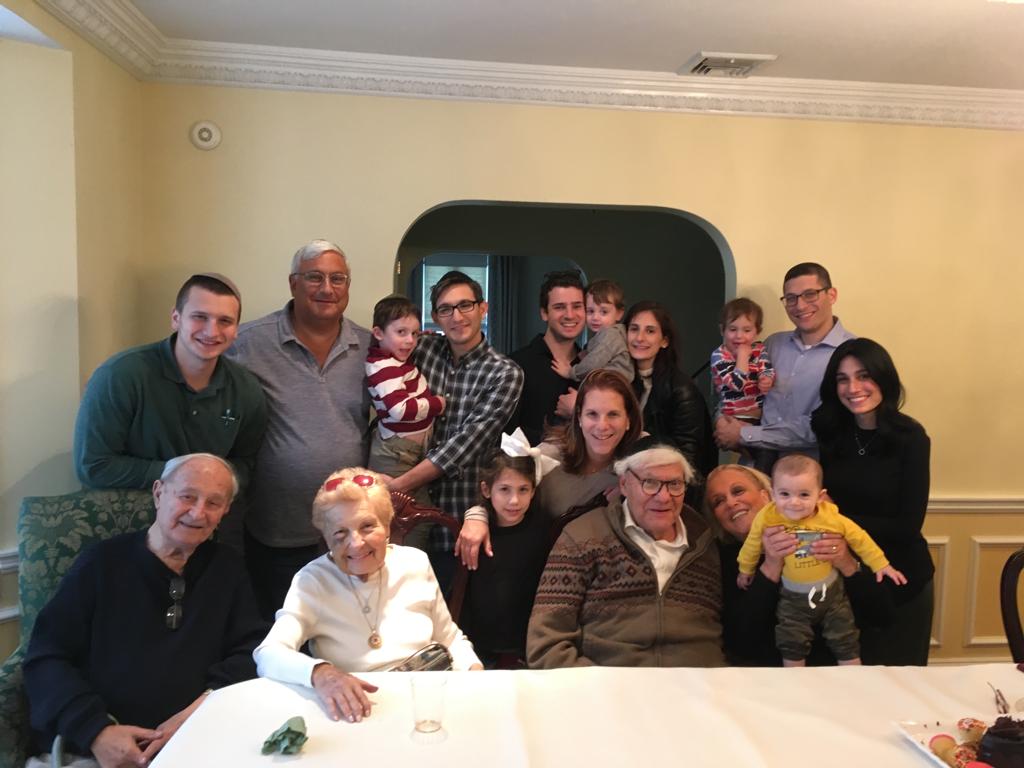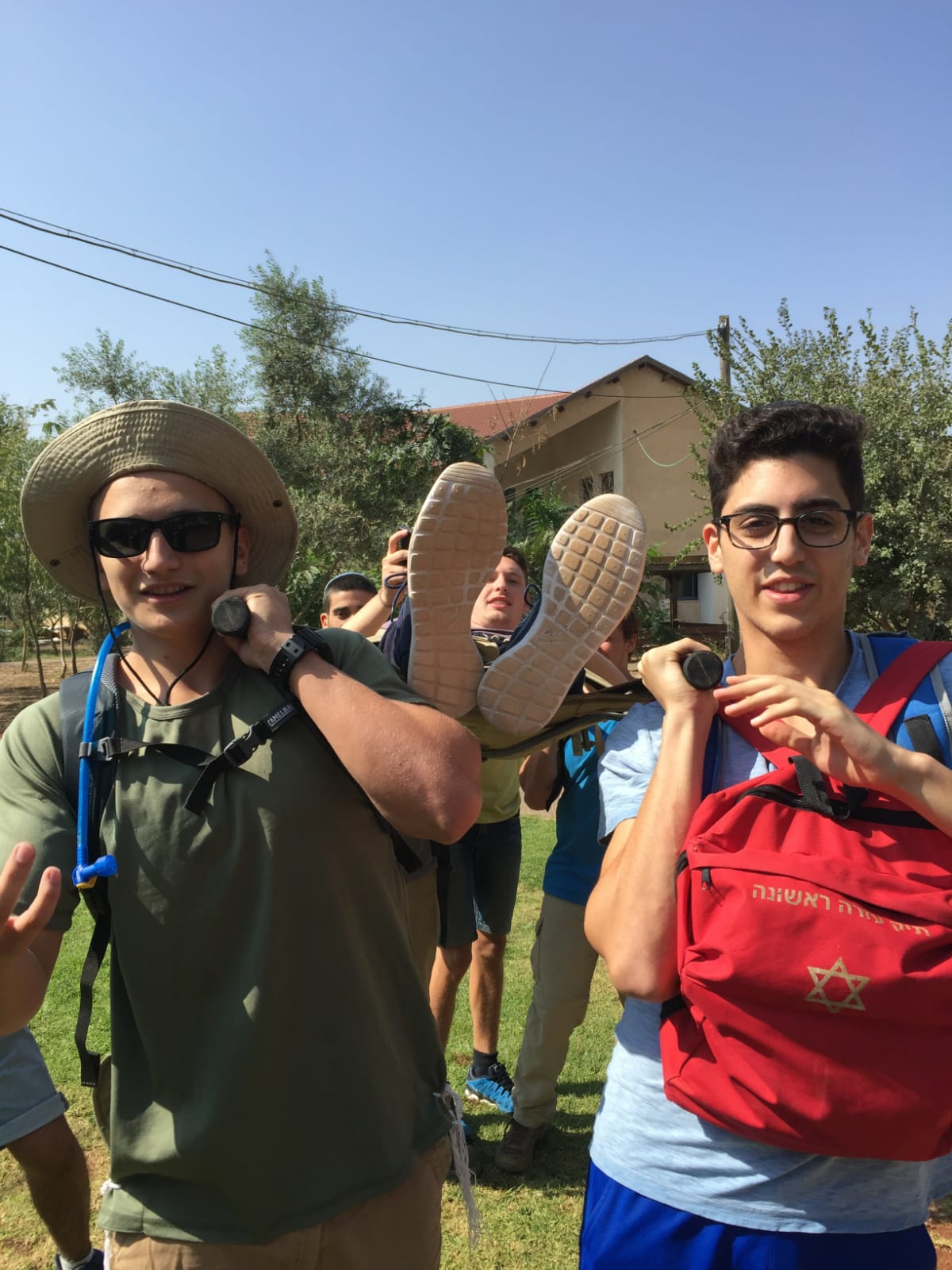Binyamin Sipzner, originally from Jamaica Estates in Queens, NY, is 22 and currently learning at the Bet El Yeshiva of Higher Learning. In this interview he discusses his experiences and decisions that led him to make Aliyah and dedicate his time to Torah learning.
[Interview conducted by Sharona eshet-Kohen]
Sharona Eshet-Kohen (SEK): Tell me a little bit about your childhood.
Binny Sipzner (BS): I grew up in Jamaica Estates in Queens, NY. I have three siblings, all significantly older than me. We grew up Modern Orthodox. To us that meant an emphasis on tradition, the importance of family, celebrating the haggim (Jewish holidays) and Shabbat, and being active members in the community.
SEK: How did you get from Jamaica Estates to Israel?
BS: I went to HAFTR (Hebrew Academy of the Five Towns and Rockaway) growing up, but internally I didn't feel religious at all. My parents were pretty unhappy about that.
All my life I saw kids in my community grow up and go to universities where they would lose their Jewish identity and mix with the non-Jewish student population.
I always assumed I would go to some public university, like Michigan or Maryland, mix with the non-Jews there, and that would have been it. Honestly, the thought kind of scared me.
In high school I thought about taking a gap year after graduating to volunteer. At some point someone suggested I go to Israel, but I didn't think about it very seriously, and neither did my parents when I mentioned it to them.
My parents just assumed I'd be a "normal" kid, who graduates high school, goes to college, and then starts working. But as graduation became more and more of a reality, I started feeling more strongly about volunteering and also about staying a Jew and maintaining my Jewish identity.
I went to Poland with my high school and it had a big impact on me. It was there that I decided I wanted to make Aliyah and go to the army. It strengthened my identity very much.
I tried to join Garin Tzabar, but I wasn't accepted because my Hebrew wasn't good enough. I had heard about mechinot [IDF prep academies] that prepare olim [immigrants] for army service and also teach them Hebrew. I looked at a few, both religious and non-religious.
I searched on the internet and found a religious mechina in the North for me called Keshet that had a Hebrew program for English speakers. I became completely fluent in Hebrew while I was there. I attended a year and a half with the intention to draft when I finished.
But Hashem had a different plan for me. At Keshet, I connected with Torah in a way I never had in America. I began to understand what the Jewish people are doing in Israel, what we're meant to be doing at all. So I decided that before the army I wanted to spend time at a yeshiva to dedicate myself to learning and developing in that field.
Don't get me wrong, the army is very important, and if I wasn't immersed in Torah right now I would want to be a commander in the IDF. But I feel that Torah is more foundational and basic to what is taking place in our country right now, and I want to be a part of that. I plan to take a few years in between my Torah learning to serve.
SEK: And why did you choose the Bet El Yeshiva specifically?
BS: After Keshet I knew I did not want to be in a Haredi yeshiva - it's not for me; I wanted a place that is dati-leumi [national-religious]. I looked at a few places like Har HaMor, Mercaz HaRav, and Bet El. I liked Bet El because here I felt a sense of togetherness and belonging, of being a part of one body.
And I also really like their hashkafa [philosophy]. Many people in Israel think Rav Zalman, the Rosh Yeshiva here, offers a big hiddush [new idea] in the way he sees the world. But many of the conclusions he comes to are similar to those of rabbis in America, so I feel comfortable with it.
SEK: How long do you want to learn in the yeshiva?
BS: Based on my educational background, I had to take a couple years in the beginning to learn how to learn Gemara properly. And there is a six-year learning cycle in yeshivot called sevev. After spending the first two years playing catch-up, I'm now 1 1/2 years into the cycle, so I have another 4 1/2 years to go.
After that I'd like to take time off to draft, and then return to get smicha [rabbinical ordination] up to the level of Rabbanut Ir. In total I plan to learn for 10-12 years.
SEK: That is a long time! What do you plan to do when you finish?
BS: I want to help olim from America get acclimated to Israel culture, to help them find their niche here, and to encourage them to figure out what hashkafa suits them and what ideals are important to them. It takes time to learn what it means to be an Israeli, to fully appreciate what we're doing here, what we're living for.
Many olim leave after a year or so because the big light they came with, the dreams they envisioned, begin to fade into the daily grind of real life. We need something more foundational and well-built to fall back on when the going gets tough. We need an education instilled in the depths of our soul that helps keep us inspired, that keeps the light shining brightly.
To be honest, I'm not exactly sure how I want to do this. Maybe I'll bring this education to immigrant communities in Israel; maybe I'll go on shlichut [an outreach mission] to America to educate Jews in order to help them make Aliyah.
But all that is for the future. Right now I feel I need to have my head in the sfarim [books] in order to convert that idea into a reality in the most effective way.
SEK: You've made some big life changes in the last few years. How do your parents feel about all this?
BS: Some parents tend to be more controlling, and some tend to give more freedom to their children. Barukh HaShem my parents fall into the latter category. They see that today I'm a responsible and committed adult.
It's true that at first they were pretty troubled. I am, after all, an American Modern Orthodox parent's worst nightmare. ;) Many Jewish parents in America, if not most, strongly support Israel right up to - but not past - the point where their child decides to move there.
My parents told me I was putting aside my future, all of the eighteen years of education. But once they saw that I was serious about what I was doing, and persistent, they accepted it.
Barukh Hashem, today my parents are very supportive of my decision. They bought an apartment in the Old City and they visit several times a year. It's an uphill battle, but we're all walking up it together.
SEK: That is very nice to hear. Tell me, do you have any other messages or ideas to give over to those reading this interview?
BS: For all those in America who support Israel, it's always surprising to me that there is not more funding for yeshivot like this one from the Modern Orthodox community. The Bet El yeshiva is the heartbeat of the ideals that that community represents.
For the past two years my dad has come to the yeshiva for Simchat Torah - he can't get enough of the joy, energy, and love of Torah. This is the place where those ideals come to life and become an integral part of Israeli culture and lifestyle. If all that money should go anywhere, it should go to places like this - and these place need it!
Many Jews in America view Israel as a means of Jewish survival, not as a means for Jewish growth. So they support Israel so that the Jewish people will survive, not thrive. That's a mistake.
The natural place for a Jew is here, at home, in Israel. And when Jews in the Diaspora begin to search beyond their other priorities, it is obvious to them as well. The future of the Jewish people is in Israel, and the mission is not just to survive here, but to build a strong state with strong ideals - our people's ideals.
We just need to figure out to get more Jews to come here! Every Jews has a significant part of him that is tied to here, which in some way is dormant. We just need to figure out how to uncover that connection.
Yes, there are many challenges to coming here. And yes, it requires a lot of courage and strength to overcome Aliyah's many tests. But in the end, to be a part of something so meaningful, so much bigger than life itself - well, keeping that in focus makes every hurdle feel like a stepping stone.
[Interview conducted by Sharona Eshet-Kohen, Online Media Director of Bet El Institutions]


